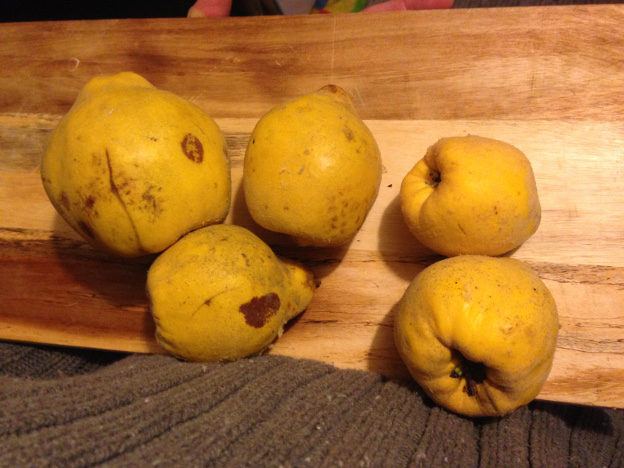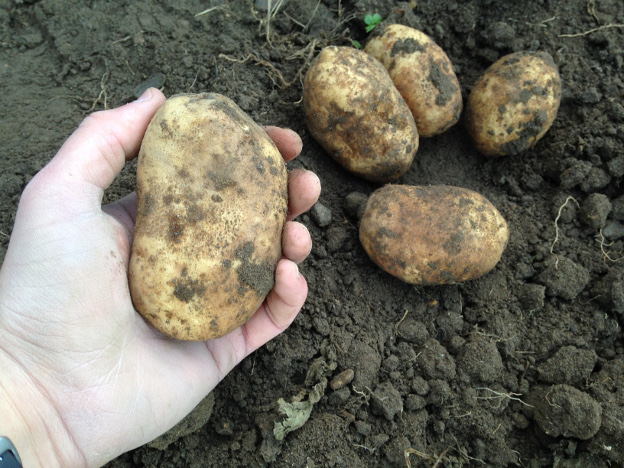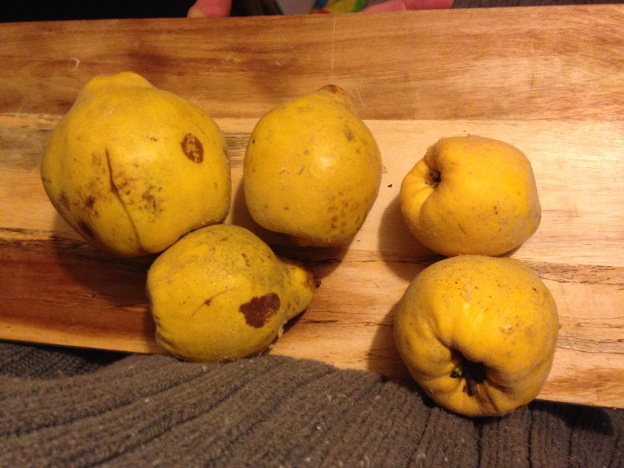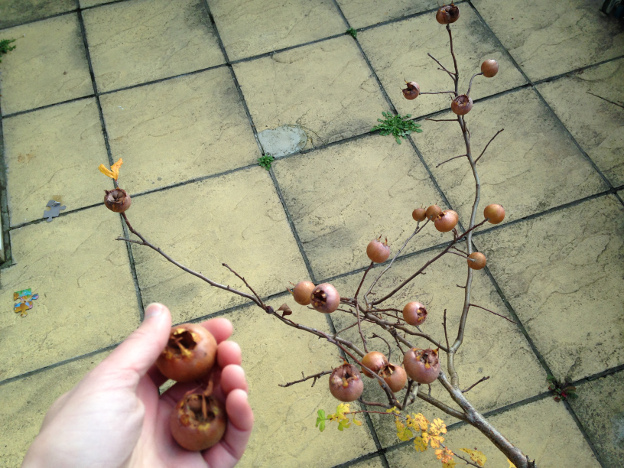The end of October was a pleasantly autumnal affair, with some nice autumn sun and cool, but not cold, temperatures. That was true right up until the evening of the final day of the month. Then as of the morning of the 1st of November it became bitterly cold and we were hit with several days of morning frosts! This caught us unprepared, and so we were in a panic to harvest the last of our more temperature sensitive crops.
The main crops that we were desperate to harvest before the frosts caused severe damage, were the last of our pumpkins and squashes. We only had one small pumpkin left to harvest. This was a small fruit of the dwarf variety ‘Baby Bear’. It hadn’t quite finished turning orange, but we decided to harvest it and let it finish ripening at home, rather than leave it out in the frosts. Our courgette plants still had female flowers on in the first week of November, but the cold weather meant that they failed to bear any further fruit.
Whilst we were reaping vast areas of our allotment, we also decided to harvest the potatoes that we transplanted in the summer. For newer readers, these were self-seeded potatoes that we inherited when we took on our allotment. They were sparsely dotted around the plot and we had to remove them in order to setup distinct beds of crop types. We didn’t like the idea of just composting them, and although we’d never heard of transplanting potatoes, we decided to give a try. We replanted them all in a section next to the shed at the allotment.
The transplantation process didn’t seem to trouble them too much, and from the tops they appeared to be growing very healthily. So back in the first week of the month, with the tops having died back a couple of weeks before, my son and I dug them all up. There were quite a few small ones, but we were surprised at the size of some of them. They were all very small when we transplanted them, but as the following photo shows, some of them grew to a decent size. It seems they didn’t mind being transplanted.
With most of the allotment harvested and things relatively quiet in the garden there’s not much else to tell this month. I’d love to say we’ve been busy preparing the allotment for the spring, but the clocks going back at the end of last month have meant that it isn’t quite light when I leave for work in the mornings, and it is dark when I come home. We’ve had a few busy weekends recently too, and so haven’t spent as much time at the allotment as we would have liked to have done.
Something that we did work on at a weekend were our Christmas puddings. That’s right, Stir-up Sunday was upon us on the 20th day of this month. We didn’t make a Christmas cake this year, as the kids don’t really like it. They don’t really like Christmas pudding either, but Liz and I do, so we decided to make puddings only this year. We all got involved though and gave the mixture a good stir for luck.
We followed the same recipe that we have used for the past couple of years and it calls for two quinces. Unfortunately our dwarf quince tree didn’t yield a single fruit this year. But a neighbour has a large quince tree and she told us to help ourselves to windfalls. We were lucky that the early hours of that Sunday morning played host to Storm Angus, which left us with a variety of quinces to choose from.
One dwarf tree that didn’t disappoint this year was our dwarf medlar tree. We’ve had our harvest indoors for a couple of weeks now and they are mostly bletted. Medlars aren’t easy to come by, so we have been really pleased with the yield we have gotten this year from our very small tree. It’s safe to say this year we have been completely self-sufficient in medlars!
Well that just about covers this month. In December we hope to harvest some more of our crops from the garden and the allotment and use to them in some warming winter meals. Hopefully we’ll also find time to get to the allotment and make a start on the many jobs that need doing before the spring. Be sure to check back to find out how we got on.






